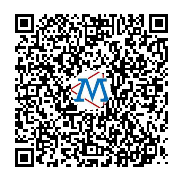props
⽗给⼦传值
// child
props: { msg: String }
// parent
<HelloWorld msg="Welcome to Your Vue.js App"/>⾃定义事件
⼦给⽗传值
// child
this.$emit('add', good)
// parent
<Cart @add="cartAdd($event)"></Cart>事件总线
任意两个组件之间传值常⽤事件总线 或 vuex的⽅式。
// Bus:事件派发、监听和回调管理
class Bus {
constructor() {
this.callbacks = {};
}
$on(name, fn) {
this.callbacks[name] = this.callbacks[name] || [];
this.callbacks[name].push(fn);
}
$emit(name, args) {
if (this.callbacks[name]) {
this.callbacks[name].forEach(cb => cb(args));
}
}
}
// main.js
Vue.prototype.$bus = new Bus();
// child1
this.$bus.$on("foo", handle);
// child2
this.$bus.$emit("foo");实践中通常⽤Vue代替Bus,因为Vue已经实现了相应接⼝
vuex
创建唯⼀的全局数据管理者store,通过它管理数据并通知组件状态变更。
组件通信最佳实践
$parent/$root
兄弟组件之间通信可通过共同祖辈搭桥,$parent或$root。
// brother1
this.$parent.$on('foo', handle)
// brother2
this.$parent.$emit('foo')$children
⽗组件可以通过$children访问⼦组件实现⽗⼦通信。
// parent
this.$children[0].xx = 'xxx'注意:$children不能保证⼦元素顺序
$attrs/$listeners
包含了⽗作⽤域中不作为 prop 被识别 (且获取) 的特性绑定 ( class 和 style 除外)。当⼀个组件没有
声明任何 prop 时,这⾥会包含所有⽗作⽤域的绑定 ( class 和 style 除外),并且可以通过 v-
bind=”$attrs” 传⼊内部组件——在创建⾼级别的组件时⾮常有⽤。
// child:并未在props中声明foo
<p>{{$attrs.foo}}</p>
// parent
<HelloWorld foo="foo"/>refs
获取⼦节点引⽤
// parent
<HelloWorld ref="hw"/>
mounted() {
this.$refs.hw.xx = 'xxx'
}provide/inject
能够实现祖先和后代之间传值
// ancestor
provide() {
return {foo: 'foo'}
}
// descendant
inject: ['foo']插槽
插槽语法是Vue 实现的内容分发 API,⽤于复合组件开发。该技术在通⽤组件库开发中有⼤量应⽤。
匿名插槽
// comp1
<div>
<slot></slot>
</div>
// parent
<comp>hello</comp>具名插槽
将内容分发到⼦组件指定位置
// comp2
<div>
<slot></slot>
<slot name="content"></slot>
</div>
// parent
<Comp2>
<!-- 默认插槽⽤default做参数 -->
<template v-slot:default>具名插槽</template>
<!-- 具名插槽⽤插槽名做参数 -->
<template v-slot:content>内容...</template>
</Comp2>作⽤域插槽
分发内容要⽤到⼦组件中的数据
// comp3
<div>
<slot :foo="foo"></slot>
</div>
// parent
<Comp3>
<!-- 把v-slot的值指定为作⽤域上下⽂对象 -->
<template v-slot:default="slotProps">
来⾃⼦组件数据:{{slotProps.foo}}
</template>
</Comp3>© 版权声明
文章版权归作者所有,未经允许请勿转载。
相关文章
暂无评论...


